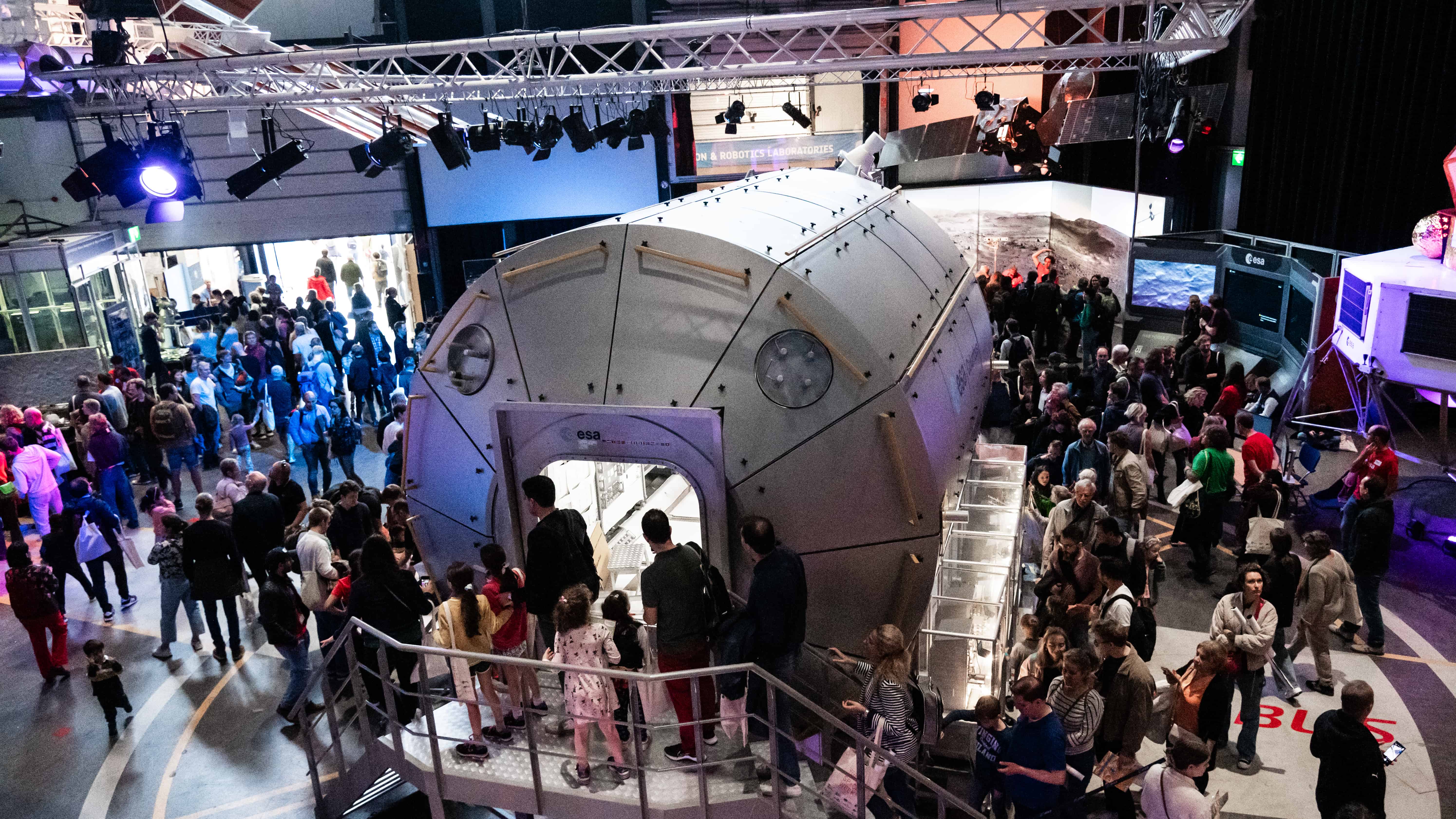
The Space Summit in Seville is currently in full swing. At the summit, which brings together 22 ESA member states, ESA is unveiling its vision for Europe’s future; among other things, ESA announced a competition in which commercial parties will set up a cargo service between Earth and the International Space Station (ISS).
- ESA has climate as its top priority.
- Cargo is also central; ESA is partnering with commercial parties.
Live from the space station
The summit started with ESA astronaut Andreas Mogensen, who dialled in live from the ISS. The astronaut stressed the importance of space exploration in overcoming many challenges we face on Earth. “We often think space exploration is only about what we see in the sky at night when we look up. But as astronauts, we often look down at our globe. And then we realise that space exploration is mostly about the Earth itself.”
Mogensen stresses the importance of the ISS for the climate crisis, among other things. He is currently working on an experiment himself, filming thunderstorms and lightning. The footage could generate a deeper understanding of how these phenomena develop and interact with the upper layers of the atmosphere, and how they affect greenhouse gases such as ozone.

Observational data and digital twins
ESA Director General Josef Aschbacher also stresses that the climate crisis is a top priority in the coming years. Thus, the Green Transition Information Factory allows users to explore the complex transition to carbon neutrality by 2050 using Earth observation, cloud computing and advanced analytical tools. This platform enables decision-makers to assess policy effectiveness, industries to develop green economic solutions and citizens to get involved in the green transition.
A pilot system is already active in Austria. During the meeting, it was revealed that a system is now also being built for Slovakia.
Next steps in cargo
ESA is also taking follow-up steps on cargo. ESA has invited European companies to submit proposals for commercial cargo services to and from the International Space Station and future low-Earth orbit outposts. “In the long run, we might even go to the Moon,” Aschbacher said. 75 million euros will be released for the project. The cargo vehicles can carry cargo into space and also take it back with them. Something not possible until now.
ESA says it is increasingly relying on commercial collaborations like this to further stimulate innovation in space. Another example paving the way for commercial services in space is ESA’s Moonlight. This is the first initiative to allow private space companies in Europe and Canada to offer a telecommunications and navigation service on the moon through satellites.






